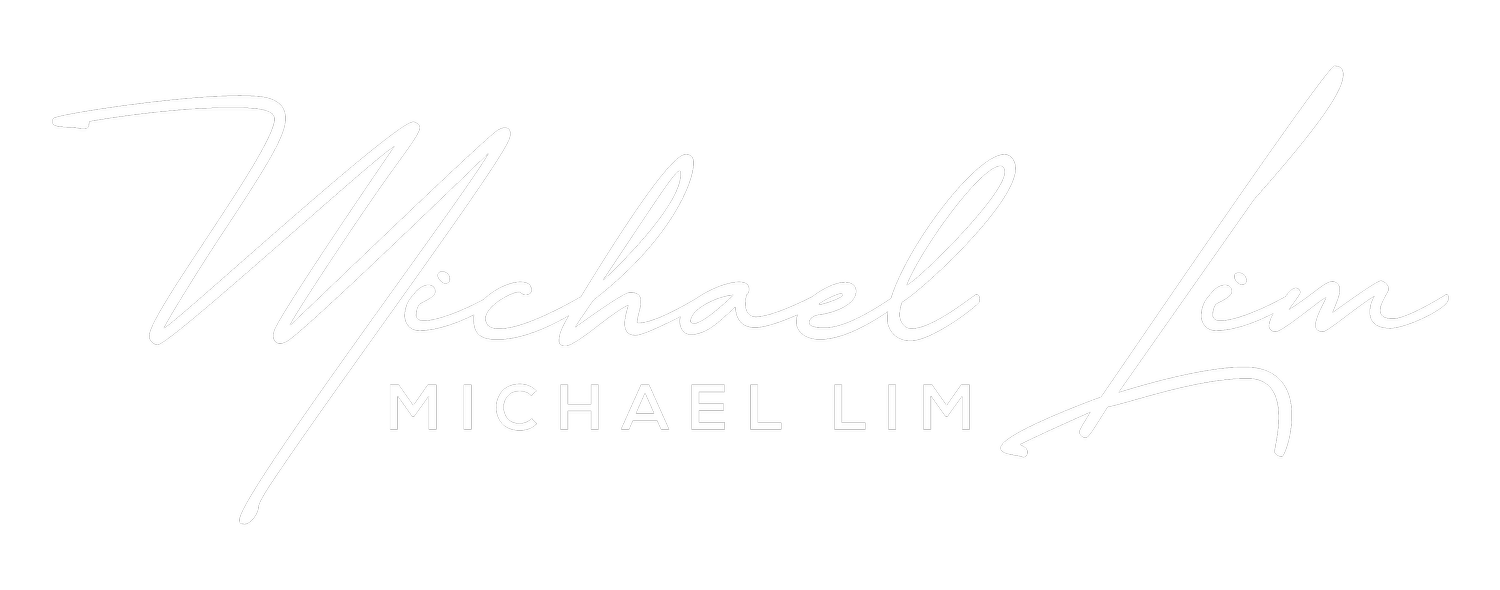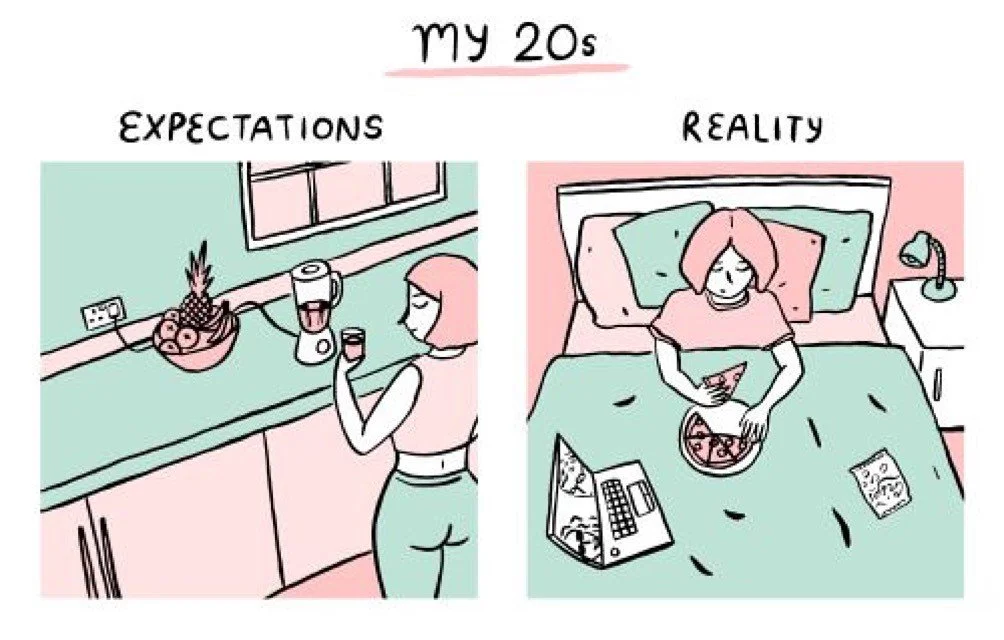Why Feeling Lost in Your 20s Might Actually Be a Good Thing for You
Don’t trade your happiness for more certainty.
I’ve noticed that the students who are the most certain about their career paths at twenty are often the ones with the deepest regrets by thirty.
— Adam Grant, Think Again.
Photo by Matthew Ball on Unsplash
When I was 20, I pictured myself having everything sorted in my life by 27.
By my late twenties, I thought I would be working in my dream career as a lawyer, driving an amazing car and surrounded by an incredible group of friends named Chandler and Monica who lived across the hall from me.
How has that turned out?
Well, I turned 27 last month and I feel even more lost than I did at 20. I’ve only just come to terms that I’ll turn 30 in about 1,000 days or so.
Not that I am counting or anything.
Everybody told me my 20s would be hard, but I thought I would have a few more things sorted out by this age.
My lofty expectations have been dashed by reality.
My theory is that as I age and hopefully get wiser, I am more aware of how many options there are in life.
At 20, I had more of a singular vision and identity due to ignorance. I saw everything as black or white. Right or wrong. And I didn’t know what I didn’t know. Ignorance is bliss as they say.
At 27, I’ve now had enough life experiences to know what I don’t know. I see the nuances of everything and understand the world is complex. I am less certain of my own knowledge and even more insecure about my life path.
We live in a society where quick and early success is put on a pedestal. Precocious young talent is shoved down your throat. I mean who doesn’t want to be on the Forbes 30 under 30 list?
But what if feeling lost in your 20s is a blessing rather than a curse?
Let’s find out.
The true enemy of success is success itself.
Success can be a pair of golden handcuffs that keeps you trapped and prevents future growth.
I experienced this first hand when I was the recipient of two prestigious awards when I was only 22 years old. I had newspaper articles written about me. I was asked for interviews and invited to speak at cool events.
Credit: Star Weekly Article
The platform it gave me was great but the success started to pigeon-hole me into a career that I enjoyed but didn’t want to do forever.
I became ‘that guy’ known for ‘that one thing’.
I now had to make a choice that all startups have to make:
Persevere or pivot.
Persevering will be safe. I had already established myself as a leader in this space. I had the respect of my peers, status and a good reputation.
Pivoting will be challenging. Identity change is painful and takes humility. You can feel like the spotlight is on you and everyone is watching you either fail or succeed.
Author’s own image — some of the cool events I got to speak at
When you’re young and achieve a level of success in one field, how do you change when the world or your interest changes? It can take a lot to climb up one mountain and be forced to climb down again.
You can become a victim of your own success. Early success might stop you from experimenting and doing new things. Now that you’re successful, you’ve got status to lose and a reputation to protect.
I have friends who achieved early success at the expense of their relationships. They have accolades but are lonely. They are successful but their mental health is terrible.
They couldn’t stop doing what they were doing. Success became a drug and they needed their next fix. They craved success long after it stopped serving them.
What got you here, won’t be the thing that gets you there.
Remember that not deciding to pivot is a lazy choice for persevering. This can result in what Kevin Kelly says “pre-maturely optimize their life and chase a false summit.” Hence the list of regrets by 30 years old.
Your 20s aren’t the time to optimize your life in one direction but rather explore your path in many different directions. Aim for breadth over depth.
Early success is not what it all seems. So is late success better?
The beauty of late bloomers
If I asked you what the average age of a start-up founder was, what would your answer be?
22 years old? 30 years old?
Yep. You heard it right.
In a study by Wharton School, assistant professor Daniel Kim revealed that, between 2007 and 2014, at the time of the founding, the average age of all the entrepreneurs in the US was 42.
We might see the occasional tech billionaires like Mark Zuckerberg, Bill Gates or Melanie Perkins but those are the exceptions that prove the rule.
A similar study of Nobel Laureates found that:
The average age of men and women when receiving the Nobel Prize is 71 for chemistry, 67 for economics, 68 for physics, and 68 for physiology or medicine during 2010–2019.
So if you think that you’ve missed the boat on starting your company or winning the top prize in your field. Think again. If you’re doing the hard work in your 20s, you still have decades before you even reach your peak.
What can we learn from these studies?
Anyone, at any age and at any stage of your life can bloom.
And that humans need time to experiment and develop.
Experimenting with different jobs and careers, gaining life experiences through extensive travel. All these things require one thing: time and freedom.
This is why most insanely successful people had meandering careers during their lifetimes. They were climbing different hills, every time starting from scratch with no loss of enthusiasm.
Steve Jobs spent a long period wandering in his 20s. He was a self-tilted “hippie, a Zen Buddhist, and an artist.” But he credits this period of wandering as critical to thinking about creating killer products for Apple.
Despite the statistics, we don’t hear stories of late bloomers in mainstream media. We are in danger of losing this narrative that you can bloom at any stage of your life.
Early success can mean you narrow your focus and the early optimization of life can mean you take fewer risks, see experimentation as a waste of time and interpret failure as a measure of your self-image.
Conclusion
Maybe the goal in your 20s is not to have complete certainty but build the skills to adapt to changing circumstances.
The straightest path is not always the fastest path. A longer path might prove to be the best developmental track for your future success.
What I wanted at 20 is different from what I wanted at 27. If I had what I wanted at 20 I would be a miserable lawyer in an unhappy marriage.
A healthy person is someone who realizes that they can bloom, rebloom, grow and succeed throughout their lives.
We equate feeling ‘lost’ as failure instead of the transformative impact it can have through introspection, reflection, and iteration.
—————————————————————————————————
If you enjoyed this article, you can connect with me HERE.
You can also support more of my work by becoming a Medium Member using my referral link: michael-lim.medium.com




